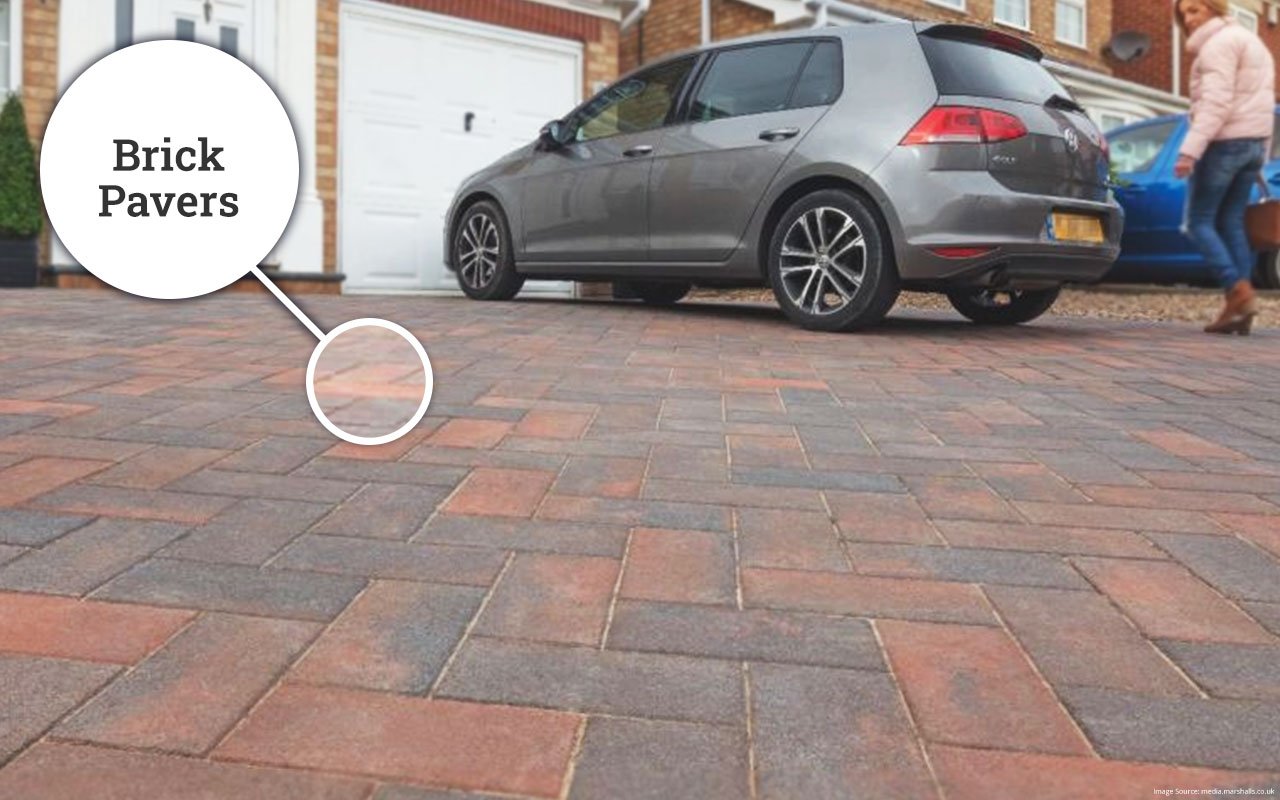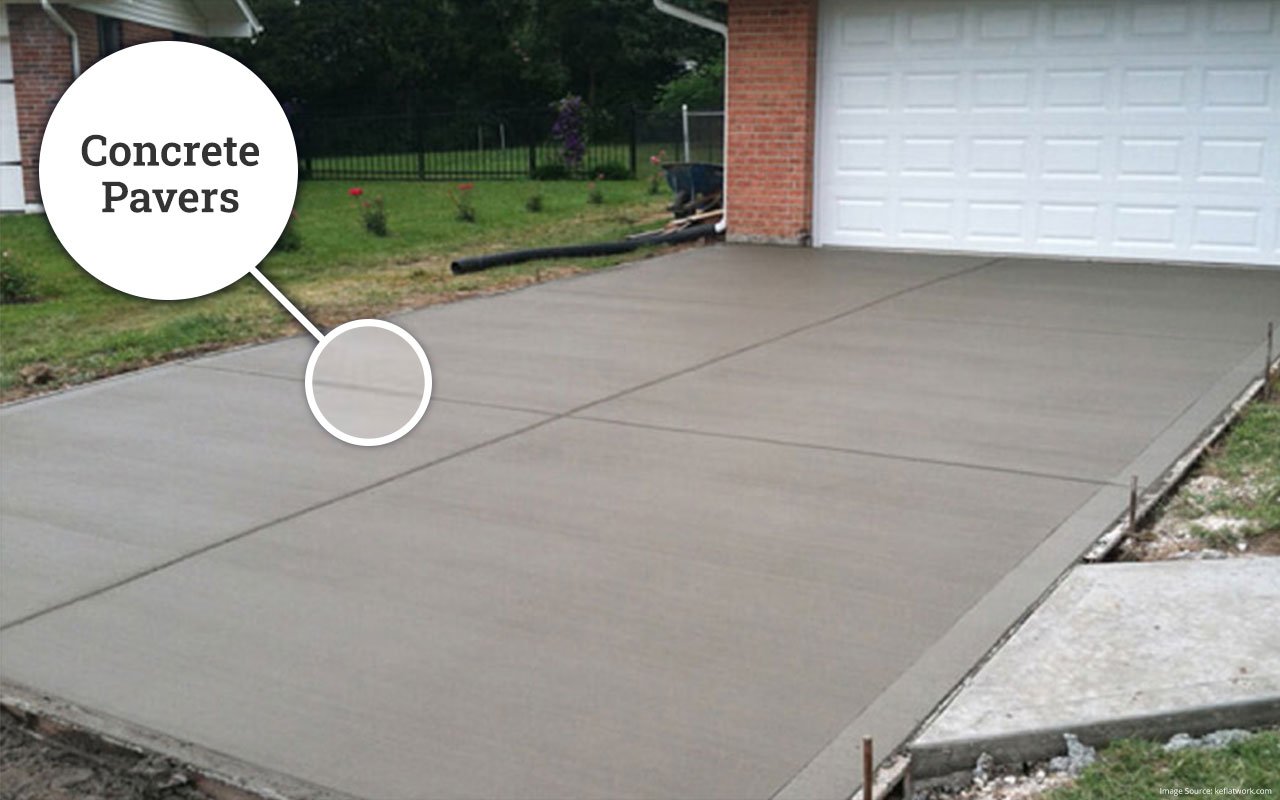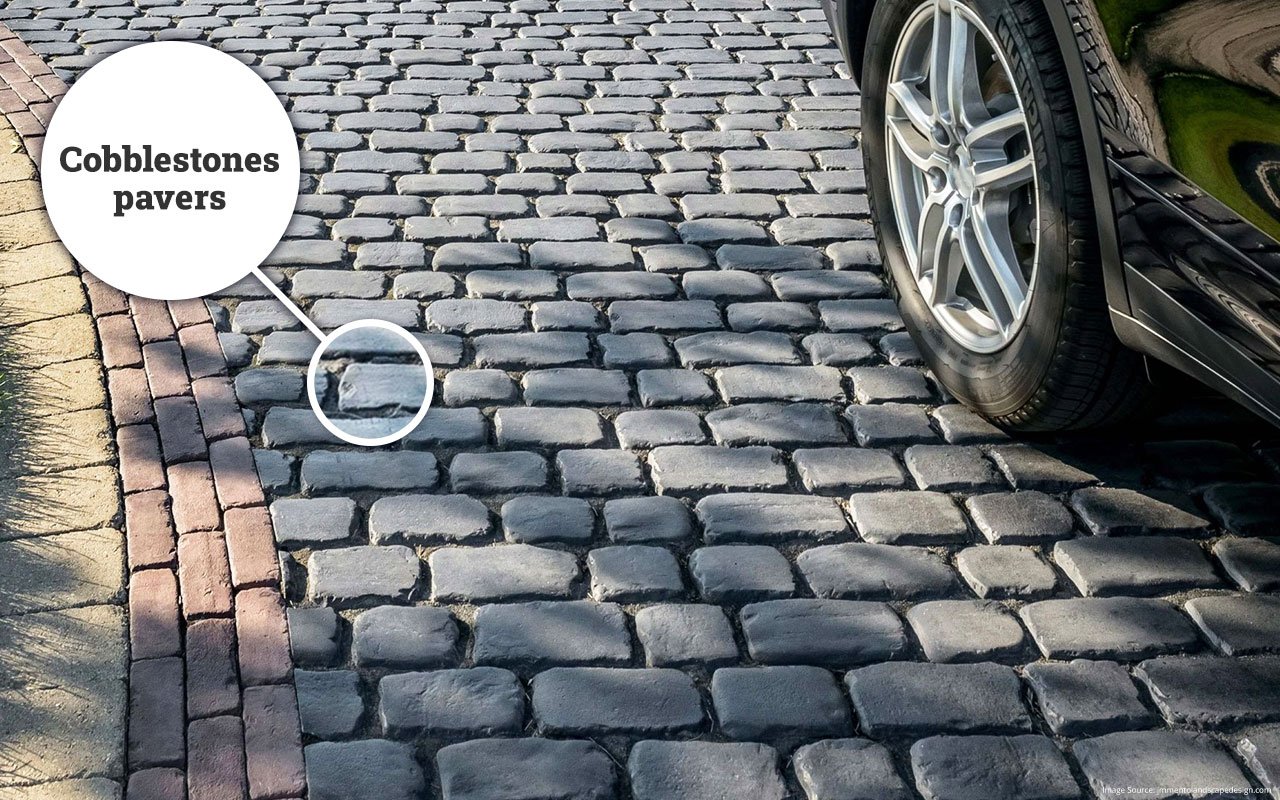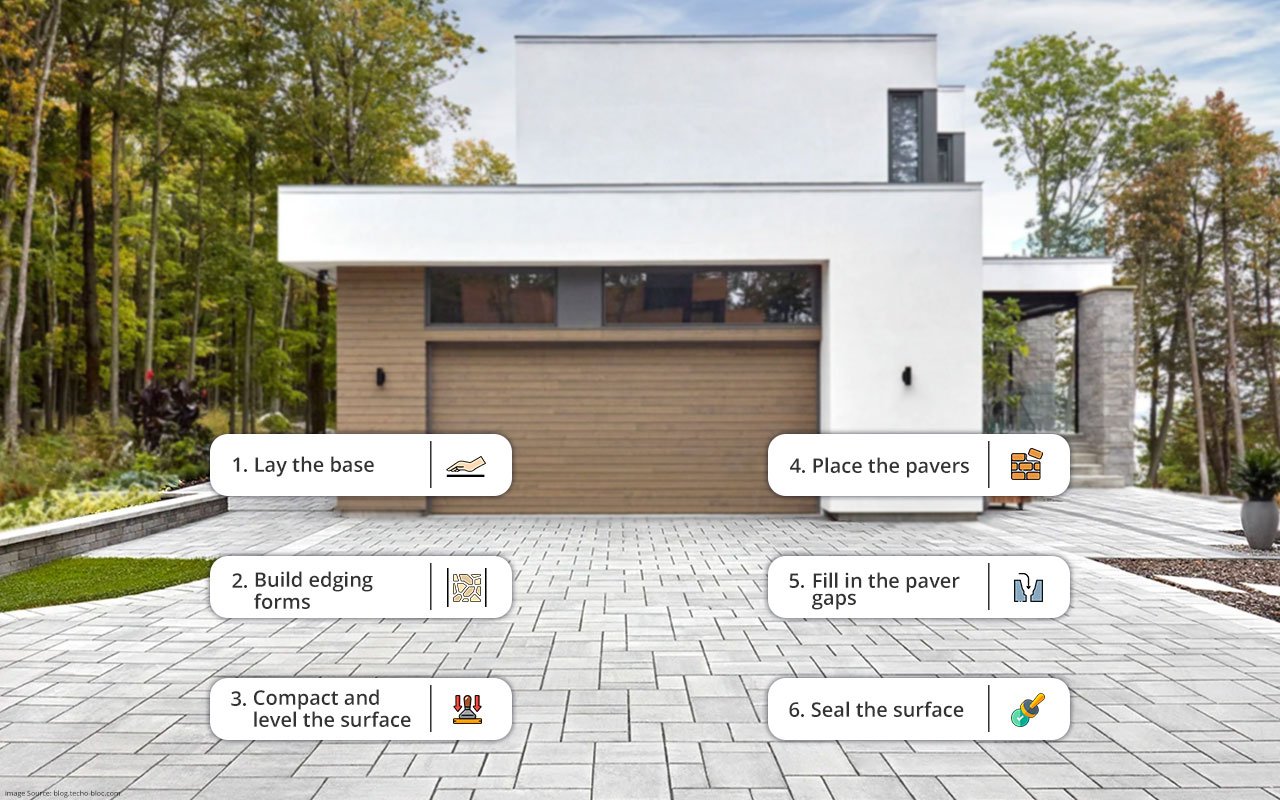The most common driveway pavers surfaces are Asphalt and Concrete. Both are long-lasting, low-cost materials with a relatively long lifespan when appropriately maintained. The average cost of an asphalt driveway is about $3 to $5 per square foot, and it can last 12 to 20 years with care. Installing a concrete driveway costs between $6 and $10 per square foot nationally, and it may endure 40 years or more with proper upkeep.
However, both of these materials are a bit drab. If you have enough of the same old driveway treatments, it’s time to consider utilizing driveway pavers on your next project.
Paver driveways are usually constructed on a foundation of compacted gravel and sand. On the other hand, some people are amazed to find that there are three distinct pavers, each with advantages and disadvantages.
Advantages of Pavers
Pavers come in a broader range of designs, colors, and overall looks. If you pick the proper pavers and install them correctly, your home’s curb appeal is guaranteed.
Pavements are also porous, which benefits environmentally aware homeowners. Instead of allowing rainwater (and driveway oil and salts) to run off the street and into watersheds, pavers with sand-filled joints allow water to soak into the ground rather than wash away.
Brick Pavers

Brick pavers are formed from molded and baked clay. A brick paver driveway can last for many years, but it is still the most delicate of all paver choices since weather and use may eventually cause clay bricks to flake and break apart. The strength of brick pavers is about 12,000 pounds per square inch, making it one of the sturdiest alternatives. A brick paver driveway may endure for 25 years if properly maintained.
Cost: $10 to $30 per square foot, including materials and labor.
Concrete Pavers

The most popular paver driveway option is to construct concrete molded into bricks. Concrete paver driveways have a longer lifespan than clay bricks, with lifespans of 25 to 50 years typical. Concrete pavers are somewhat less durable than brick paver driveways, with an 8,000 pounds per square inch strength rating sufficient for general use. Also, Concrete paver driveways are more robust than solid concrete slabs.
Cost: $30 to $40 per square foot, including materials and labor.
Cobblestones

Cobblestones are paving materials produced from natural quarried stone blocks. These are by far the most durable of all paver choices; cobblestones should last at least a century, and if they do disintegrate, it’s usually due to the driveway base crumbling first; cobblestones themselves are essentially unbreakable. Cobblestone driveways are highly appealing, but the surface is somewhat rough, preventing you from utilizing the driveway in specific ways. For example, you can’t play basketball on a cobblestone driveway.
Cost: $40 to $70 per square foot, including materials and labor.
DIY or Pro Installation?

Driveway pavers are often more expensive than concrete or asphalt, but intrepid do-it-yourselfers may significantly reduce those prices by performing the task themselves. While the labor might be time-consuming and physically demanding, it is not difficult to put down pavers yourself. The process goes as follows:
- Lay the base: Most installations use crushed stone as a foundation.
- Build edging forms: Plastic or metal edging is used to make a form for the pavers to sit in.
- Compact and level the surface: A motorized plate compactor or hand-held tamper is used to compress and flatten the gravel base, after which a layer of sand is added and flattened out to create the foundation for the pavers.
- Place the pavers: The pavers should be placed directly on top of the sand surface. Varying placements of pavers may be used to create ornamental patterns. This is the most challenging phase since accurate leveling is required as placement proceeds.
- Fill in the paver gaps: Mason’s sand is now employed to fill in the space between pavers. The joints are fully packed with sand using a plate compactor that vibrates them.
- Seal the surface: Many types of pavers need to be sealed to protect the materials from stains and deterioration. Every few years, sealing may be required.
Conclusion
If you’re planning to hire a professional contractor to do the work, it’s a good idea to do some research ahead of time. Never employ someone without first speaking with several and receiving quotations. The majority of contractors will provide an estimate for no charge. Remember that the lowest-cost option isn’t always the best one. If you receive one estimate that is significantly lower than the rest, it should be a cause for concern. Customer happiness is a reliable indicator of whether or not a contractor should be hired.



1 Comment
Pingback: How to Install Paver Edging - Discover the yard